- Home
- Keith Douglass
First Strike c-19
First Strike c-19 Read online
First Strike
( Carrier - 19 )
Keith Douglass
Russian radicals refuse to end the Cold War without a bang-a nuclear one. But Tombstone MacGruder and the Carrier Battle Group will see the U.S. attacked… when hell freezes over.
Keith Douglass
First Strike
ONE
Moscow
Thursday, September 8
1300 local (GMT+3)
There had been a time when Andrei Korsov would have been one of the most powerful men in the world. As commander of the Strategic Rocket Forces, he owned every long-range ballistic missile in the Soviet Union’s inventory, as well as thousands of maintenance technicians, operators, and testing and development facilities. His forces comprised more men and more equipment than many small nations.
Korsov’s power had not been limited to strictly military matters. The nuclear arsenal was the centerpiece of the USSR’s mutual assured destruction policy, or MAD. Korsov consulted daily with the premier — and, later, the president — and advised the Politburo on the readiness posture and responded to political changes in alert status. His circle of influence spilled over into domestic policy, as more and more resources were diverted to support the nuclear forces. He knew the key players in every scientific community as well, as the USSR explored its option in mass destruction. No one in the then-USSR ever failed to return his phone calls.
Privately, Korsov had mixed feelings about MAD. The policy originated in the United States. At the dawn of the nuclear age, as mass destruction and long-range weapons became a reality, a think tank in the United States had explored the possibility of detecting and destroying incoming nuclear missiles. Technologically, it was impossible. Casting about for solutions, the team had finally arrived at the conclusion that the only way to deter a nuclear attack from another nation — specifically, from the Soviet Union — was to make the consequences so deadly and complete that no nation would ever attempt it. Ensuring that America retained the capacity to retaliate under all conditions led to the development of the nuclear triad, with weapons deployed on alert aircraft, in hardened silos, and on submarines. Yes, the analysts concluded, the Evil Empire could devastate the United States, but she would pay with her own life.
While the policy seemed to have worked, at least to the extent of avoiding a nuclear holocaust, Korsov had never completely been able to accept the entire insanity of it. After all, the only nation to use nuclear weapons against another had been the United States herself, at the end of World War II. It seemed to him that that was what led the Americans to live in fear of such an attack. Having made the decision to use them herself, America knew what nations were capable of.
Still, the insanity of MAD had its perks. With America committed to the doctrine, the Soviet Union followed suit, and service in the nuclear weapons forces became the most prestigious of career paths. Rubles poured in to every program, funding submarines and more submarines, mobile land-based launch systems, and scores of bombers. What the nation gave up in domestic prosperity was Korsov’s gain.
At the time of the demise of the Soviet Union, Korsov had been deputy commander. When the inevitable search for scapegoats reached his department, he was ready. The commander was urged to retire and Korsov, who had aligned himself with the new powers ruling Russia, stepped in to his billet.
Unfortunately, world reaction to the status of nuclear weapons in former Soviet States brought extreme pressure to bear. Faced with a declining and unstable ruble and a harsh winter pending, Russia and the Commonwealth of Independent States agreed to massive disarmament as a condition of increased aid from America and the rest of the world. Rusting weapons were dismantled, ancient fire-control systems destroyed — or, at least, so it was reported to the rest of the world. In the chaos following the dissolution of the USSR, no one was entirely sure who was keeping records of what. Entire launch systems vanished, some simply destroyed without adequate documentation, others turning up later on the international black market in weapons.
Korsov’s connection to the Internet ran at only 9,600 baud, but even that was an impressive accomplishment, given the state of the Russian telephone system. It was sufficient to enable him to log on to AOL and other Internet providers, scan the international news, and keep up an E-mail correspondence with several missile friends.
It wasn’t access to the hard news content that really worried the political powers in Russia. It was the lifestyle section, pictures overflowing with riches far beyond the grasp of the average Russian. As long as there was no independent source of information, whoever was currently in power could convince the population that their standard of living was pretty much the same as it was around the rest of the world, particularly in the United States.
But it was the news that interested Korsov most. He had not been expecting to find such a gem in his daily news traffic, not at all. But something inside him told him that he must keep up with it, must, if he was to improve his current situation.
Something about the story in front of him held promise, although he could not say exactly what it was at first glance. He read it again.
It was a short, heartwarming human-interest story about a young boy who needed a bone marrow transplant to combat his leukemia. An international charity had flown him to the United States, but his doctor was not hopeful about finding a donor match. DNA profiling had revealed that the child’s frail body held the genes of a small band of indigenous people and there was little hope that a match could be found for the lifesaving transplant. In a short paragraph at the end of the article, the writer explained that the child’s doctor had worked on the human genome project and had been part of the team working in the United States that had finally broken the genetic code.
Supercomputers had analyzed every last DNA sequence and now knew exactly which patterns represented which manifestations in the human genome. Research showed that 99.8 percent of the genes found in any human being were identical to those of every other person. It was that.2 percent that accounted for all the individual variations in color, build, stature, and susceptibility to hereditary diseases. While the report did not go into detail, Korsov could easily read between the lines, and fear surged through him.
They know his race. Know it from his genes. Korsov leaned back in his chair, stunned. Know thy enemy.
Up until now, a large amount of the data was classified, and Korsov could see why. If the genetic differences were common knowledge, biological weapons could be engineered to attack particular genetic sequences.
Granted, there were problems with designer viri targeted to particular sequences of genes. Most of America and Europe were melting pots of different races. Even Russia had her mongrels, ranging from ancient Tartar blood to the most recent infusion of immigrants from East Germany and Ukraine.
Yet, there were possibilities in this. Astounding possibilities. And Korsov intended to act on them.
His first telephone call was to an old friend, now a genetic researcher at the University of Moscow. Korsov only vaguely understood his friend’s research, but knew that he was paralleling the work being done in the United States on the human genome code. His friend’s focus was hereditary diseases, with particular emphasis on determining whether or not the ravages of alcoholism in Russians were indeed genetic or environmental. While that might not be exactly on point, if anyone he knew could explain this news to him, it was his friend.
Five minutes later, Korsov had his answer. Russian scientists had taken a different approach to the problem. Instead of analyzing the entire genetic code, they had focused solely on that.2 percent. There were not only answers to the question of identifying race, the weaponeers had solutions as well.
Even in September, Moscow was
already in the grip of winter. Old snow coated the streets, masking ancient buildings and covered crumbling concrete of the newer buildings with an all-concealing white blanket. This morning, the city’s few snowplows traced their carefully planned routes between the areas where the rich and powerful lived and their probable destinations. The rest of the city was left covered with snow, with the inhabitants left to their own devices in making their way through the roads.
Aside from the elite, few people owned cars. The shops and stores they used were within walking distance, or could be accessed by the public transit system.
Not that there was anything to buy. And leaving their apartments would simply contribute to heat loss, since opening the door would let in ice-cold air. Fuel was expensive, far out of the reach of many. Most apartments relied on a single electric blower or cooking plate, and that only during hours when electricity was supplied. The average Muscovites hoarded their resources, covering the single pane windows with blankets and sheets in an effort to cut down on wind, keeping the door shut, and staying heavily clothed inside.
For Korsov, this was not a problem. He lived a life far different from that of most of his countrymen, but not so dissimilar from his counterparts in the United States. His large, four-bedroom house heated by a seemingly endless supply of propane. There was never a shortage of hot water or fuel for cooking — and, indeed, food was delivered to his house almost daily, coming from the special shops reserved for the elite.
While Korsov understood intellectually the deprivations his countrymen lived under, he had no real concept of the impact on everyday life. It wasn’t that he didn’t care — he did. But making the translation from intellectual knowledge to truly understanding the gut-wrenching hardships that others experienced was simply beyond him.
What he did understand, and what ruled most of his life, was the dramatic downfall of the USSR. During his early years, Korsov, the son of a member of the Politburo, had been groomed to take his eventual place as part of the reigning royalty in the Soviet Union. He had attended the right schools, made the right friends, and served with the army in Afghanistan. He was politically, ideologically, and physically beyond reproach. Everyone had predicted a brilliant future for him. Korsov basked in the glow of the future that was to come.
With the downfall of the Soviet Union, everything changed. His achievements, his education, even his contacts suddenly meant nothing. For Korsov, it was a crushing blow.
In the years that followed the collapse of the Soviet Union, Korsov’s grief over its demise turned to anger, and then determination. He would not have it all taken from him — he would not. The Soviet Union would be restored, albeit under a new name, and he would have his revenge for what had been taken from him. He searched for years for the right way to achieve this, an avenue by which he could strike back at the country most responsible for the Soviet Union’s demise.
The culprit was, of course, the United States. He watched with hope as a succession of administrations gutted the military power of his adversary. He could barely contain his glee as the United States became more and more vulnerable to the dictates of the United Nations. And finally, the United States’ adventures in the Middle East, not only Desert Storm and Desert Shield, but the attack on the USS Cole, had given him his final insights.
From Korsov’s study of America’s history, he had derived two major understandings. First, she would not tolerate losses in combat. Oh, certainly, the military services understood the risks, at least the senior people did. But in America, oddly enough, public opinion had a great deal to say about how the military conducted its operations. He almost laughed at the idea — an insane concept, expecting a civilian to understand how and why a military must operate. At least Russia had never fallen into the track, although he had to admit that politicians had played far too powerful a role.
But the American aversion went beyond that. They were not willing to tolerate any casualties—none. Grand strategy and brilliant tactics were replaced only by efforts to reduce body counts.
Second, after the attacks on U.S. forces in the Middle East, he was finally forced to reach another conclusion — America would not fight back. She would tolerate terrorist attacks, especially ones in the foreign governments, howling and wildly demanding justice in international courts, but they would not strike back.
It was, Korsov knew, a pitiful dream, and one that would inevitably lead to the eventual downfall of America. Powerful nations did not tolerate this, not tolerate it and survive. When challenged, they crushed the opposition. When threatened, they reacted with overwhelming force. When attacked, they destroyed.
But his data points were only from overseas conflicts. He suspected it would be a far different matter if a conflict took place on the United States’ own territory. But, aside from the attack on Pearl Harbor, America had never faced military action on her own soil.
That night, Korsov dreamed of revenge. He saw America as it was shown in the news reports: happy, prosperous, the streets crowded with cars, the chaos on the floor of the New York Stock Exchange, the stores filled with food and consumer goods. Then, beginning along the East Coast, he saw a thin line of red creeping ever westward. The line started somewhere around Washington, D.C., and expanded exponentially, finally covering the entire country, as well as parts of Canada and Mexico.
With the red zone, nothing moved. Crops rotted in the field, cars were abandoned alongside roads. The giant military bases were silent, the industrial complexes deserted. America was dead.
Then, the repopulation began, ships and aircraft converging on the abandoned land from Russia, spilling masses of colonists out onto both coasts. Aircraft filled the center of the country with more people, even more than on the coasts, and the population began spreading out from the center toward the coasts. They filled the empty factories, the abandoned houses, and worked the fields. The faces were happy, smiling, delighted in hard work and with their lives.
And they were speaking Russian.
There would be no war — at least, not one that anyone would recognize. The United States would have to be gutted on the first strike, not allowed time to realize the outrage that had been perpetrated on her, not given an opportunity to retaliate. The strike must be instantly devastating and anonymous. America would not know who had struck her, would not know who to retaliate against. And, not knowing, she would die.
For the first time in ten years, Korsov felt a surge of hope. The effort he’d put into his earlier years would not be wasted. He had friendships, tentacles of power, in virtually every military and industrial complex in the CFS. And among those contacts were people who thought as he did, people now in positions of power. With their resources and the genetic weapons that had been developed, his dream could become a reality.
Still, he shivered at the thought of what he was about to attempt. Even his most hard-line friends might quail at the prospect of deploying genetic weapons against the United States. He would have to be extremely careful in selecting the members of his team, extremely careful.
Yuri. Yuri Maskiro. He’s as ready as I am. He will understand the dream.
For all of his friendship with Maskiro, Korsov always felt a bit intimidated around the former Spetnaz now missile commander. Maskiro retained an air of deadly menace from his days in the Special Forces, and was physically and mentally as tough as they came. Maskiro stood well over six feet tall and every inch of his body rippled with power. Korsov’s only consolation was that he had long ago concluded that he was slightly more intelligent than Maskiro.
But this wasn’t a matter of intelligence. It was a matter of determination, of visionary ability to see into the future, to a Russia as she should be, and of the will to make that future a reality. Whatever shortcomings that Maskiro might have in the intellectual department, they were more than compensated for by his utter loyalty and belief in Korsov.
It would not do to trust the telephone lines or the mail as he coordinated the plan. No, even though the
KGB had changed its name, it still retained its awesome powers within the country. There would be keyword searches, not as sophisticated as those the United States used, but, with fewer telephone lines to monitor, just as effective.
No, this would require personal contact. He picked up the telephone and called Central Command, explaining to the general’s chief of staff that he would be away for several days attending to a personal matter. There was no reluctance to grant him leave of absence. Since military officers had not been paid for several months, the general knew that forcing the matter would simply result in a mutiny. He had neither the resources nor the desire to prosecute unauthorized absences.
With that arranged, Korsov booked the first flight he could get into the heartland of Ukraine. He debated calling ahead and telling Maskiro he was coming, but decided against it. Yuri would welcome him with open arms, of that he was certain. Over the years, they had established that they were of like minds, carefully feeling each other out as to political views and determination, both aware that someday the opportunity would come and that they would strike together and form the backbone of a new power structure within the unwieldy CIS.
Yes, Yuri would be glad to see him. And, as commander of all forces along the Black Sea and in the Crimean Peninsula, Yuri would have the resource that Korsov needed — missiles.
TWO
USS Jefferson
Bridge
1300 local (GMT-4)
Four hundred miles northeast of Bermuda, the USS Jefferson steamed at ten knots inside her assigned exercise box. The guided missile cruiser USS Lake Champlain and several frigates kept station on the carrier, each one a prescribed distance and bearing from the centerpiece of the battle group. The battle group was conducting evaluations of some recent tactical proposals.

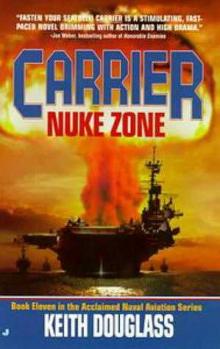 Nuke Zone c-11
Nuke Zone c-11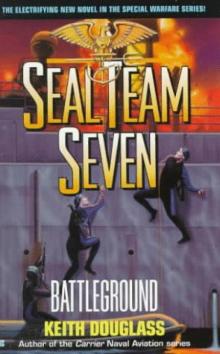 Seal Team Seven 6 - Battleground
Seal Team Seven 6 - Battleground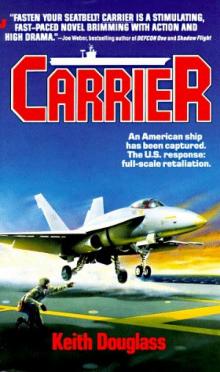 Carrier c-1
Carrier c-1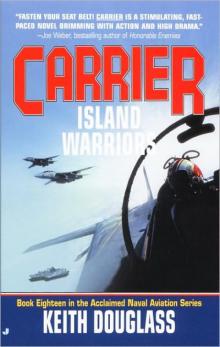 Island Warriors c-18
Island Warriors c-18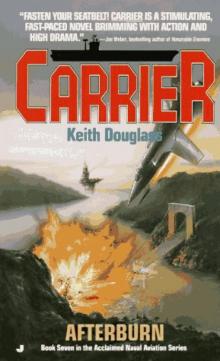 Afterburn c-7
Afterburn c-7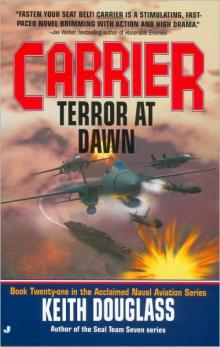 Terror At Dawn c-21
Terror At Dawn c-21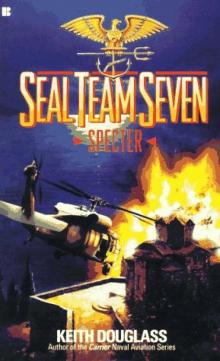 Specter sts-2
Specter sts-2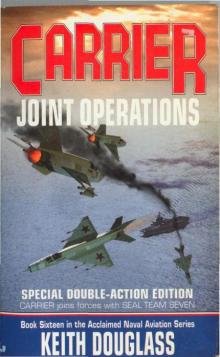 Joint Operations c-16
Joint Operations c-16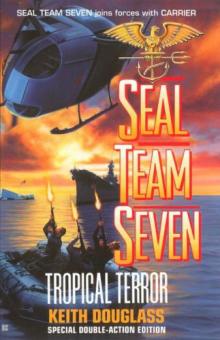 Tropical Terror sts-12
Tropical Terror sts-12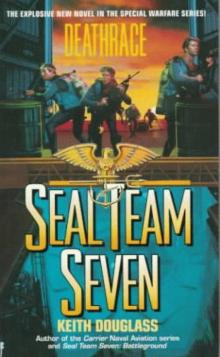 Seal Team Seven 7 - Deathrace
Seal Team Seven 7 - Deathrace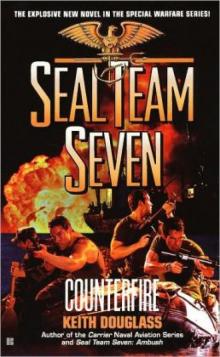 Counterfire sts-16
Counterfire sts-16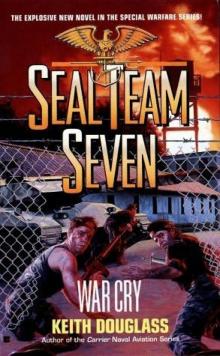 War Cry sts-9
War Cry sts-9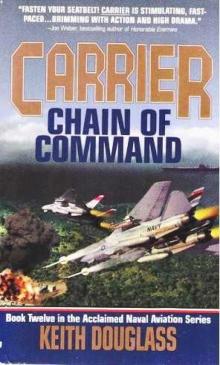 Chain of Command c-12
Chain of Command c-12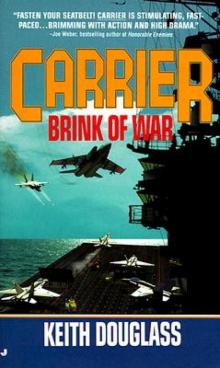 Brink of War c-13
Brink of War c-13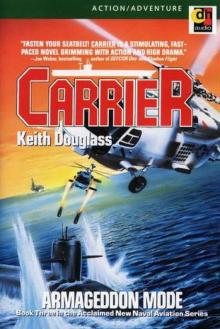 Armageddon Mode c-3
Armageddon Mode c-3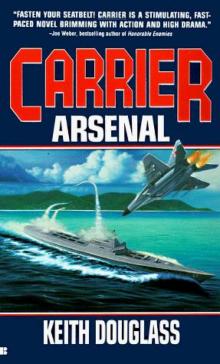 Arsenal c-10
Arsenal c-10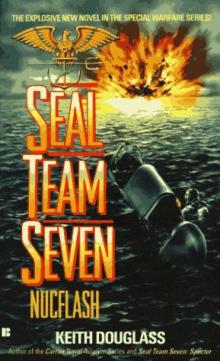 Nucflash sts-3
Nucflash sts-3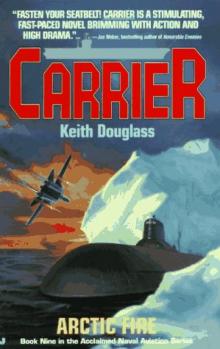 Arctic Fire c-9
Arctic Fire c-9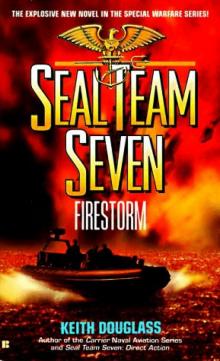 Firestorm sts-5
Firestorm sts-5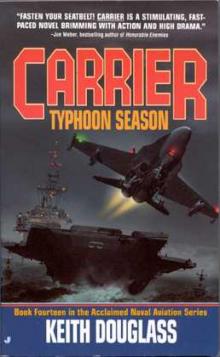 Typhoon Season c-14
Typhoon Season c-14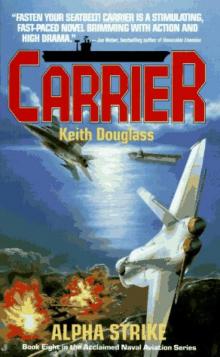 Alpha Strike c-8
Alpha Strike c-8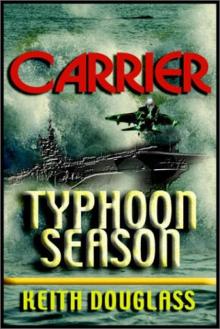 Carrier 14 - TYPHOON SEASON
Carrier 14 - TYPHOON SEASON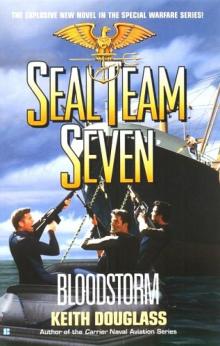 Bloodstorm sts-13
Bloodstorm sts-13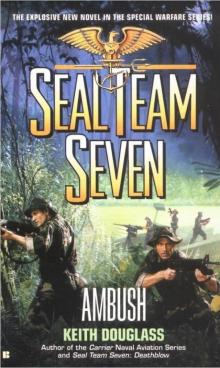 Ambush sts-15
Ambush sts-15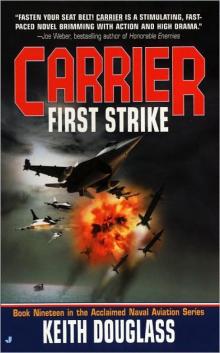 First Strike c-19
First Strike c-19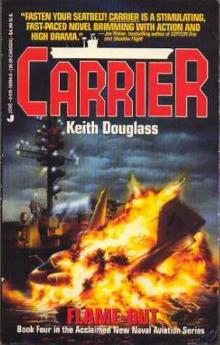 Flame Out c-4
Flame Out c-4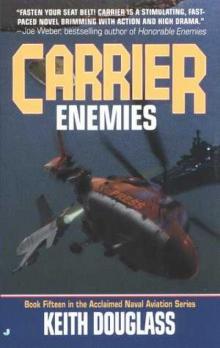 Enemies c-15
Enemies c-15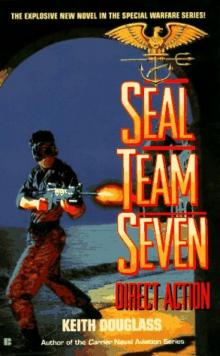 Seal Team Seven 04 - Direct Action
Seal Team Seven 04 - Direct Action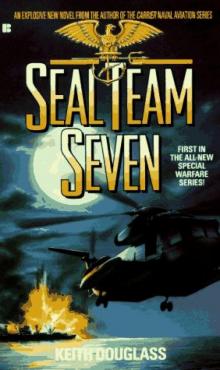 Seal Team Seven 01 - Seal Team Seven
Seal Team Seven 01 - Seal Team Seven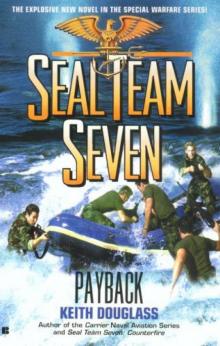 Payback sts-17
Payback sts-17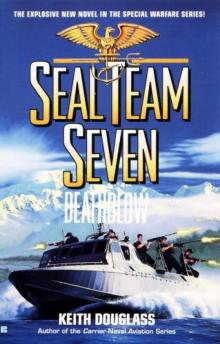 Death Blow sts-14
Death Blow sts-14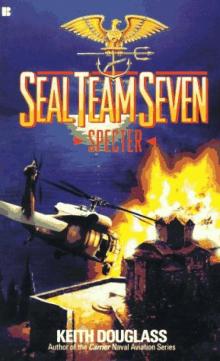 Seal Team Seven 02 - Spector
Seal Team Seven 02 - Spector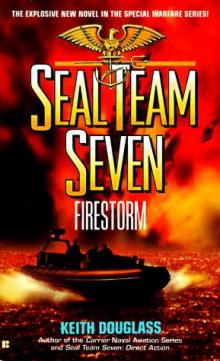 Seal Team Seven 5 - Firestorm
Seal Team Seven 5 - Firestorm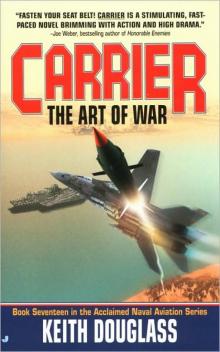 The Art of War c-17
The Art of War c-17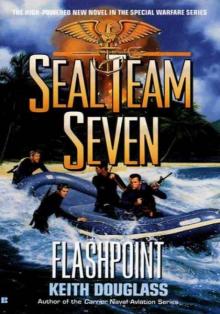 Flashpoint sts-11
Flashpoint sts-11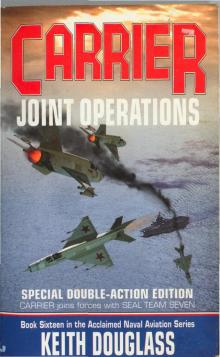 Carrier - Joint Operation Book 16
Carrier - Joint Operation Book 16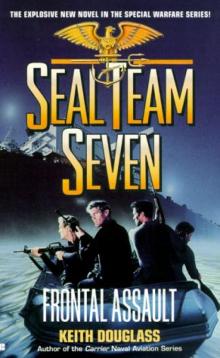 Frontal Assault sts-10
Frontal Assault sts-10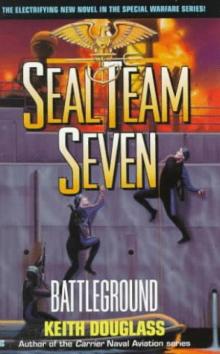 Battleground sts-6
Battleground sts-6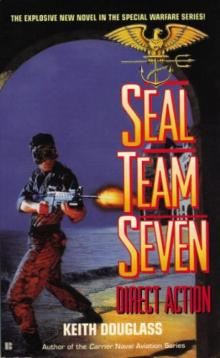 Direct Action sts-4
Direct Action sts-4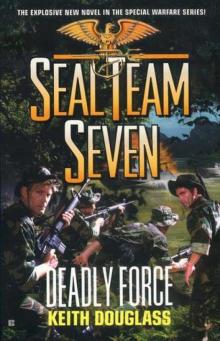 Deadly Force sts-18
Deadly Force sts-18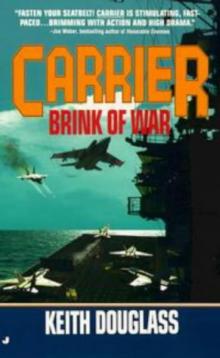 Carrier 13 - Brink of War
Carrier 13 - Brink of War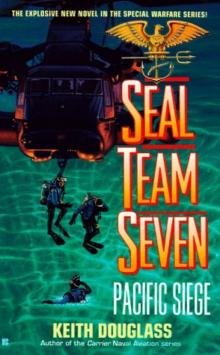 Pacific Siege sts-8
Pacific Siege sts-8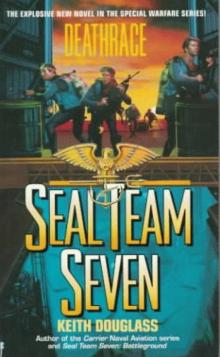 Deathrace sts-7
Deathrace sts-7